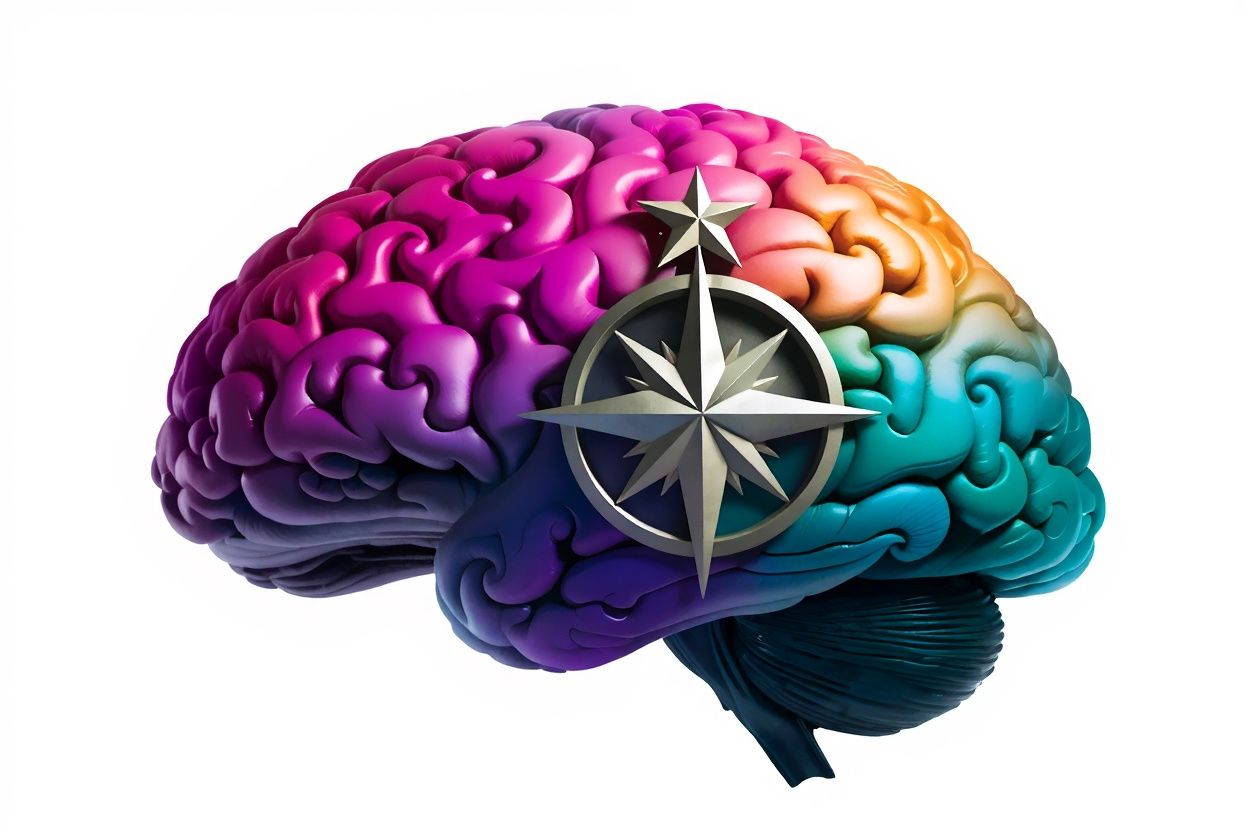10 Practical Philosophy Principles for Leading a Purposeful Life
Ready to go deeper? I’ve created a comprehensive self-paced multimedia course that explores each of these 10 principles in depth, complete with actionable insights, practical exercises, and guided self-reflection questions. This evidence-based course brings together years of research and clinical experience to support your journey toward purposeful living. Visit the Courses section at JosephKellyDesigns.com and enroll today to begin transforming these principles into lived practice.
Philosophy has always been more than an academic exercise confined to university lecture halls or dusty library shelves. At its core, practical philosophy represents a lived commitment to examining how we move through the world and why we make the choices we make. When we integrate philosophical principles into our everyday existence, we create a framework for living that honors both our individual growth and our connection to others.
The principles I’m sharing here aren’t theoretical abstractions. They’re grounded practices that have emerged from years of working as a mental health research social worker, studying various wisdom traditions, and observing what actually helps people navigate the complexity of modern life. These principles draw from cognitive and behavioral psychology, ancient philosophy, and contemporary research on wellbeing. They’re designed to be accessible and actionable, regardless of your background or current circumstances.
What distinguishes practical philosophy from purely theoretical approaches is its emphasis on application. Knowledge becomes meaningful only when it transforms how we live. The ten principles outlined below offer a comprehensive path toward greater clarity, purpose, and fulfillment. Each principle builds on the others, creating an interconnected approach to intentional living.
1. The Principle of Self-Reflection
Self-reflection forms the foundation of any meaningful philosophical practice. Without the capacity to examine our own thoughts, emotions, and motivations with honesty and curiosity, we remain strangers to ourselves. This principle invites us to develop what might be called an “observer consciousness” where we can witness our inner experience without becoming completely identified with every passing thought or feeling.
The practice of self-reflection involves regularly creating space to ask ourselves essential questions. What are my core values, and am I living in alignment with them? What patterns do I notice in my reactions and behaviors? Where am I operating from conditioning rather than conscious choice? These aren’t questions to answer once and file away. They’re living inquiries that evolve as we grow and change.
Many people resist self-reflection because they fear what they might discover. But avoiding this inner examination doesn’t make difficult truths disappear. It simply ensures we’ll remain unconscious of the forces shaping our lives. When we develop the courage to look honestly at ourselves, we gain the power to make intentional changes rather than being carried along by unconscious patterns.
Practical self-reflection doesn’t require hours of isolated meditation, though contemplative practices certainly support this work. It can happen during a morning walk, in the pages of a journal, or in conversations with trusted friends who ask thoughtful questions. The key is consistency. Regular self-reflection, even in brief intervals, cultivates self-awareness far more effectively than occasional deep dives.

2. The Principle of Mindful Presence
Mindfulness has become something of a cultural buzzword, but the principle of mindful presence remains profoundly important despite its commercialization. This principle asks us to show up fully for our actual experience rather than living primarily in our thoughts about the past or future.
When we practice mindful presence, we develop an intimate relationship with the present moment. We notice the quality of light filtering through windows, the subtle textures of emotions arising in our bodies, the richness of sensory experience that often goes unnoticed when we’re lost in mental chatter. This isn’t about achieving some blissful state of permanent presence. It’s about repeatedly returning our attention to what’s actually happening right now.
The neuroscience behind mindfulness reveals why this practice matters so much. Our brains have evolved to constantly scan for threats and opportunities, which keeps us perpetually oriented toward past or future. This survival mechanism served our ancestors well but often creates unnecessary suffering in modern contexts. When we train the capacity to rest in present-moment awareness, we interrupt cycles of rumination and anxiety that arise from mental time travel.
Mindful presence also fundamentally changes our relationships. When we’re actually present with another person, they feel seen and met in a way that’s increasingly rare in our distracted culture. This quality of attention becomes a gift we offer both to ourselves and others.
Developing mindful presence requires practice, but it doesn’t demand perfection. Notice when your mind wanders into planning, replaying, or worry. Gently guide your attention back to immediate sensory experience. Over time, this simple practice transforms how you inhabit your life.
3. The Principle of Purpose
Purpose gives our lives direction and meaning. It’s what gets us out of bed in the morning and sustains us through difficulty. Yet many people struggle to identify their purpose, or they confuse it with their career, their role, or some grand destiny they’re meant to fulfill.
I understand purpose as the intersection between what matters deeply to you, what you’re uniquely positioned to offer, and what the world needs. It’s not necessarily something you find fully formed. Purpose often reveals itself gradually as you pay attention to what brings you alive, what problems you feel called to address, and what activities make you lose track of time.
Your purpose doesn’t need to be revolutionary or historically significant. It might involve raising children with intention, creating beauty through art or craft, contributing to your local community, or being a steady presence for people going through hard times. Purpose is personal and particular. What matters is that it resonates with your deepest values and pulls you forward into meaningful engagement with life.
Living with purpose requires distinguishing between what genuinely matters to you and what you think should matter based on external expectations. This discernment doesn’t happen overnight. It emerges through honest self-reflection, experimentation, and paying attention to what generates genuine fulfillment versus what provides only temporary satisfaction or social approval.
When you identify your purpose, even tentatively, you gain a compass for decision-making. Opportunities can be evaluated against whether they align with or detract from your purpose. This clarity helps you say no to things that don’t serve your deeper direction, freeing up energy for what truly matters.

4. The Principle of Dynamic Balance
Balance might sound like a cliché, but its importance can’t be overstated. Without balance, we burn out, neglect crucial aspects of our lives, or sacrifice long-term wellbeing for short-term achievement. The principle of dynamic balance asks us to maintain appropriate attention across different life domains: work, relationships, health, personal growth, rest, and community.
The word “dynamic” is crucial here. Balance doesn’t mean giving equal time to everything or achieving some static state of perfect equilibrium. It means honoring what different areas of life require in different seasons, and being willing to adjust as circumstances change. When you’re launching a business or caring for a newborn, your life will naturally tilt toward those demands. The key is recognizing when temporary imbalance has become chronic neglect of other essential needs.
Dynamic balance involves continuous calibration rather than one-time achievement. What worked last year may not serve you now. What you need this month may differ from what you’ll need next quarter. This requires regular check-ins with yourself about whether your current life structure supports your wellbeing and your purpose, or whether adjustments are needed.
Pay attention to where your life feels out of equilibrium. Are you sacrificing sleep, relationships, or health in pursuit of professional success? Are you so focused on others’ needs that you’ve lost connection with yourself? Are you indulging in escapist behaviors because you’re avoiding necessary challenges? These imbalances create suffering and eventually undermine the very goals we’re pursuing.
Creating dynamic balance requires boundaries and the willingness to disappoint others sometimes. It means recognizing that you can’t do everything, at least not all at once. It involves making conscious trade-offs rather than trying to expand infinitely to meet all demands. And it requires the wisdom to know when to push forward and when to pull back, when to say yes and when to say no.
5. The Principle of Compassion
Compassion transforms how we relate to ourselves and others. It involves recognizing suffering, feeling moved by it, and wanting to alleviate it. This principle extends beyond occasional acts of kindness to become a fundamental orientation toward all beings.
Compassion begins with self-compassion. Many people find it easier to extend compassion outward than inward. Yet we can’t sustainably care for others from a place of self-judgment and harshness. When we meet our own suffering with the same kindness we’d offer a dear friend, we cultivate an inner environment that supports both wellbeing and genuine generosity.
Self-compassion doesn’t mean letting ourselves off the hook for harmful behavior. It means responding to our mistakes and limitations with understanding rather than shame. This actually supports positive change more effectively than self-criticism, which often triggers defensive reactions that prevent growth.
Extending compassion to others requires perspective-taking and humility. When someone acts in ways we find difficult, compassion asks us to consider what circumstances and conditioning might have led to their behavior. This doesn’t excuse harm, but it helps us respond more skillfully and maintain our own emotional balance.
Compassion also involves structural awareness. Individual kindness matters, but so does recognizing how systems create suffering. A compassionate perspective considers both personal responsibility and social context, individual action and collective change.
Cultivating compassion is a practice, not a personality trait you either have or lack. You can develop it through specific techniques: loving-kindness meditation, perspective-taking exercises, volunteering with populations different from yourself, and simply practicing noticing suffering rather than turning away from it.

6. The Principle of Intentional Growth Through Challenge
Growth is a fundamental characteristic of living systems. When we stop growing, we begin dying. But the principle of intentional growth through challenge asks us to go beyond passive development and actively seek out experiences that stretch our capacities, push our edges, and reveal what we’re capable of becoming.
This principle recognizes a paradox: we often say we want to grow, but we tend to avoid the very conditions that make growth possible. Real development happens at the boundary between comfort and overwhelm, in that zone where our current abilities meet new demands. If we stay entirely within what feels easy and familiar, we stagnate. If we push into territories far beyond our capacities, we collapse. The sweet spot lies in deliberately chosen challenges that require us to reach just beyond what we already know how to do.
Intentional growth through challenge doesn’t mean seeking hardship for its own sake or creating unnecessary difficulty in your life. It means recognizing that discomfort is often a signal that you’re expanding rather than a problem to be eliminated. When you’re learning something new, feeling awkward is normal. When you’re developing a skill, initial clumsiness is expected. When you’re changing long-standing patterns, resistance will arise.
The key word here is “intentional.” This principle asks you to consciously choose challenges aligned with your values and purpose rather than simply being buffeted by random difficulties. What areas of your life would benefit from deliberate stretching? Where have you been playing it too safe? What skills or capacities would serve you to develop?
This principle also involves reframing your relationship with failure and mistakes. From a growth perspective, these aren’t signs of inadequacy but essential feedback in the learning process. Every expert was once a beginner. Every master has accumulated thousands of hours of awkward practice and countless failures. When you view challenges as opportunities for development rather than tests of your worth, you free yourself to engage more courageously with the growing edge.
Practical application of this principle might involve taking on projects slightly beyond your current skill level, having difficult conversations you’ve been avoiding, learning new capabilities that feel intimidating, or deliberately placing yourself in situations that stretch your comfort zone. The Japanese concept of kaizen, or continuous improvement, offers a helpful framework here. Rather than seeking dramatic transformation, focus on small, consistent challenges that compound over time into significant development.
Create structures that support intentional growth. This might involve working with coaches or mentors who can help you identify appropriate challenges, joining communities focused on development in areas you care about, or establishing personal practices that regularly push you into new territory. Make growth through challenge a built-in feature of your life rather than something that happens only when circumstances force it.
7. The Principle of Recognition of Impermanence & Change
Everything changes. This simple truth stands as one of the most fundamental insights of both ancient philosophy and modern science, yet we spend enormous energy resisting it. The principle of recognition of impermanence and change asks us to acknowledge and work with the fluid nature of existence rather than exhausting ourselves trying to keep everything fixed in place.
Impermanence operates at every scale. Cells in your body are constantly dying and being replaced. Thoughts and emotions arise and pass away. Relationships evolve. Careers shift. Communities transform. Civilizations rise and fall. Nothing remains static. When we recognize this as the nature of things rather than a problem to be solved, we can engage with life more skillfully.
This principle doesn’t ask you to become passive or nihilistic in the face of change. Rather, it invites you to distinguish between what you can influence and what you cannot, and to focus your energy accordingly. You can’t stop the passage of time or prevent all loss. You can shape how you respond to change and how you hold what matters to you during its temporary presence in your life.
Recognition of impermanence actually deepens appreciation. When you truly grasp that this moment, this relationship, this phase of life won’t last forever, you’re more likely to show up fully for it. The bittersweet quality of impermanence makes things more precious, not less. Your child’s current age, your parent’s health, your own vitality, the particular constellation of friendships you enjoy right now—all of these are temporary. This recognition can awaken gratitude and presence.
Working with impermanence also means developing flexibility and adaptability. When you’re not rigidly attached to things staying exactly as they are, you can flow with changing circumstances more gracefully. You can grieve what’s ending while opening to what’s emerging. You can honor the past without being imprisoned by it.
This principle has particular relevance for dealing with loss and transition. Grief becomes less complicated when we recognize that loss is woven into the fabric of existence rather than an aberration. Change becomes less threatening when we understand it as constant rather than as a disruption of some imagined stable state. We suffer less when we stop demanding that impermanent things be permanent.
Practically speaking, recognition of impermanence and change involves regular reality-checking. Are you clinging to a relationship that has run its course? Are you trying to maintain an identity that no longer fits? Are you resisting a necessary transition? Are you failing to prepare for predictable changes? Honest acknowledgment of what’s shifting allows you to respond proactively rather than being caught off guard.
At the same time, this principle asks you to invest fully in what matters even knowing it won’t last. Love deeply while you can. Create meaningful work. Build communities. Tend relationships. The fact that nothing is permanent doesn’t make it meaningless. If anything, impermanence makes your choices and presence more significant, not less.

8. The Principle of Gratitude As A Daily Practice
Gratitude is far more than a nice sentiment or occasional thank-you note. When practiced consistently, gratitude becomes a transformative force that fundamentally reshapes your relationship with your life. The principle of gratitude as a daily practice recognizes that how you attend to your experience matters as much as what you experience, and that deliberately focusing on what you appreciate shifts your entire orientation toward existence.
Research in positive psychology has demonstrated what contemplative traditions have known for millennia: regular gratitude practice produces measurable improvements in wellbeing, life satisfaction, resilience, and even physical health. When you train your attention to notice what’s working, what you have rather than what you lack, what’s beautiful rather than what’s broken, you literally rewire your brain toward greater positivity and contentment.
This doesn’t mean adopting toxic positivity or denying real problems and suffering. Gratitude practice isn’t about pretending everything is fine when it isn’t. Rather, it’s about developing the capacity to hold both difficulty and appreciation simultaneously. You can acknowledge challenges while also recognizing what remains good in your life. This both-and perspective creates emotional spaciousness that pure problem-focus cannot.
Daily practice is key. Occasional gratitude when things are going well is easy and doesn’t create lasting change. The transformative power emerges from consistent practice, especially during ordinary or difficult times. When you commit to finding something to appreciate every single day, regardless of circumstances, you cultivate a fundamental shift in perception.
There are many ways to practice daily gratitude. Some people keep gratitude journals, writing down three to five things they’re grateful for each evening. Others create morning gratitude rituals, beginning each day by acknowledging what they appreciate. Some people share gratitude with partners or family members over dinner. Others practice gratitude meditation, systematically calling to mind people, experiences, and conditions they’re thankful for.
The specifics matter less than the consistency. What’s important is creating a regular structure that prompts you to pause and genuinely feel appreciation rather than mechanically listing things. Real gratitude involves both cognitive recognition and emotional resonance. You’re not just thinking about what you appreciate; you’re allowing yourself to actually feel the warmth and fullness that comes with genuine thankfulness.
Gratitude practice naturally extends beyond yourself. As you develop sensitivity to what you’ve received, you become more aware of your interdependence with others and with the larger web of life that sustains you. This awareness often sparks generosity and the desire to give back, creating a virtuous cycle where gratitude leads to contribution which deepens gratitude.
One powerful aspect of gratitude practice involves appreciating ordinary things we typically take for granted: running water, shelter, food, the functioning of your body, the air you breathe, the people who maintain infrastructure, the ancestors who contributed to current knowledge. When you bring conscious appreciation to the mundane miracle of what supports your life, daily existence becomes infused with wonder.
9. The Principle of Living With Authenticity & Integrity
Authenticity and integrity are closely related but distinct aspects of how we show up in the world. Authenticity means being genuine, expressing who you actually are rather than performing who you think you should be. Integrity means aligning your actions with your values, keeping commitments, and maintaining coherence between what you claim to believe and how you actually live. Together, these create a foundation for self-respect and trustworthy relationships.
Living with authenticity requires knowing yourself well enough to distinguish between your genuine feelings, thoughts, and preferences and the conditioning, expectations, and personas you’ve adopted to navigate social demands. This connects directly to the principle of self-reflection. You can’t be authentic if you don’t know who you authentically are beneath the layers of adaptation and performance.
Many people fear that authenticity means imposing every thought and feeling on others without filter. But genuine authenticity involves discernment. You can be real without being reckless, honest without being cruel, true to yourself without disregarding others’ needs. Authenticity includes knowing when and how to share what’s true for you in ways that honor both yourself and the relationship or context.
Integrity involves doing what you say you’ll do, following through on commitments, and maintaining consistency between your stated values and your actual choices. When there’s a gap between what you profess and how you behave, you create internal dissonance and erode others’ trust. Integrity isn’t about being perfect; it’s about taking responsibility when you fall short and working to close the gap between your ideals and your actions.
Living with integrity sometimes means making difficult choices. It might require saying no to opportunities that don’t align with your values, even when they’re lucrative or prestigious. It might mean having uncomfortable conversations rather than letting misalignments fester. It might mean admitting mistakes and making amends rather than defending yourself. These challenges are precisely what give integrity its weight and significance.
Authenticity and integrity both require courage. It’s vulnerable to show people who you really are rather than hiding behind protective personas. It’s risky to stand by your values when doing so has costs. It’s difficult to maintain consistency when circumstances make compromise tempting. But the alternative—living inauthentically and without integrity—ultimately costs more. It creates internal fragmentation, superficial relationships, and a persistent sense of being a fraud.
One practical challenge involves navigating different contexts that seem to call for different versions of yourself. You might present differently at work than with close friends, and that’s natural. The question is whether these variations represent authentic adaptation to different contexts or fundamental self-betrayal. Can you maintain core integrity while adjusting your presentation for different situations? Where’s the line between healthy flexibility and compromising yourself?
Living with authenticity and integrity also means being willing to evolve. Your authentic self isn’t a fixed entity that you discover once and then express forever. You’re always developing, and what’s true and right for you changes over time. Integrity includes acknowledging when your values shift and adjusting your life accordingly, rather than rigidly maintaining commitments to outdated versions of yourself.
The fruits of this principle include self-respect, deeper relationships, and a sense of wholeness. When you’re living authentically and with integrity, you don’t have to expend energy maintaining false fronts or managing contradictions between different aspects of your life. You can show up more fully, connect more genuinely, and rest in the coherence between who you are and how you live.

10. The Principle of Contributing To Something Beyond Yourself
The final principle brings us full circle, connecting individual development back to collective wellbeing. The principle of contributing to something beyond yourself recognizes that a truly purposeful life involves offering something meaningful to the world beyond your personal interests and immediate circle.
Contribution takes countless forms. It might be your professional work, volunteer service, creative expression, raising conscious children, supporting friends and family, or participating thoughtfully in civic life. What matters is that you’re giving something of value, using your unique capacities in service of something larger than personal gain or individual advancement.
This principle challenges the myth of self-sufficiency and radical individualism. We’re profoundly interdependent beings living in complex systems. Everything you have and know has come to you through countless other people’s contributions: the farmers who grew your food, the workers who built your home, the teachers who educated you, the ancestors who developed language and knowledge, the activists who fought for rights you now enjoy. Recognizing this web of mutual support naturally calls forth the desire to give back and continue the cycle of generosity.
Contribution shouldn’t deplete you. Sustainable giving flows from fullness rather than depletion. You can’t pour from an empty cup, as the saying goes. This means the other nine principles support the tenth. When you’re living with self-awareness, presence, purpose, dynamic balance, compassion, intentional growth, recognition of impermanence, gratitude, and authenticity, contribution becomes a natural expression of who you are rather than a burdensome obligation.
Your contribution doesn’t need to be grand or publicly recognized. Small, consistent acts of giving matter enormously. The kindness you show a stressed cashier, the attention you bring to your work, the care you invest in relationships, the way you show up in your community, the mentoring you offer someone earlier in their journey—all of these are forms of contribution that ripple outward in ways you may never fully see.
Contributing to something beyond yourself also provides crucial perspective during difficult personal times. When you’re struggling with your own challenges, shifting focus to how you can be of service often provides relief and meaning. It reminds you that you’re part of something larger and that your life has significance beyond your immediate circumstances.
As you consider how to contribute, pay attention to where your gifts meet the world’s needs. What do you have to offer that’s genuinely useful? What problems do you see that you’re positioned to help address? What brings you alive in ways that also benefit others? These questions point toward forms of contribution that will be both meaningful and sustainable, aligned with your purpose rather than disconnected from your core values.
Consider contribution at multiple scales: to individuals in your immediate sphere, to your local community, to causes or movements you care about, or even to future generations through work that will outlast you. Each scale matters. You don’t need to choose between them. A well-lived life includes contribution at various levels, recognizing that local kindness and global awareness both have their place.
Living the Principles
These ten principles work together as an integrated approach to intentional living. Self-reflection and mindful presence create the foundation of awareness. Purpose provides direction. Dynamic balance ensures sustainability. Compassion shapes how we relate to ourselves and others. Intentional growth through challenge keeps us developing. Recognition of impermanence and change helps us flow with reality rather than resisting it. Gratitude as a daily practice transforms our relationship with experience. Living with authenticity and integrity creates coherence between who we are and how we show up. And contributing to something beyond yourself connects individual journey to collective flourishing.
You don’t need to master all ten principles before beginning to experience benefits. Start where you are. Choose one or two principles that most resonate with your current needs and commit to practicing them consistently. As these become more natural, gradually integrate additional principles.
Remember that philosophical principles aren’t rules to follow perfectly. They’re guideposts to orient by, practices to return to again and again. You’ll stray from them countless times. What matters is your willingness to notice when you’ve wandered off course and gently redirect yourself back toward intentional living.
The path toward a purposeful life isn’t linear. It involves cycles of expansion and consolidation, periods of intense growth and times of integration. Trust the process. Stay committed to the principles even when progress feels slow or invisible. The cumulative effect of small, consistent choices aligned with these principles creates profound transformation over time.
Ultimately, practical philosophy is about closing the gap between who you are and who you’re capable of becoming, between how you currently live and how you could live. It’s about taking responsibility for your own development while remaining connected to and caring for others. It’s about making meaning in a world that doesn’t hand you a predetermined script.
These principles offer a framework, but you must discover what purposeful living means for you specifically. Your life is your philosophical laboratory. The principles come alive only through your lived experience of applying them, adjusting them, and making them your own. Begin where you are, with what you have. The journey of a thousand miles, as the ancient saying reminds us, begins with a single step.
If you’re ready to transform these principles from concepts into lived practice, I invite you to explore my comprehensive self-paced multimedia course. This evidence-based program provides deep dives into each principle, complete with actionable insights, practical exercises, guided reflections, and the support you need to integrate these practices into your daily life. Visit the Courses section at JosephKellyDesigns.com and enroll today to begin your journey toward more intentional, purposeful living.
